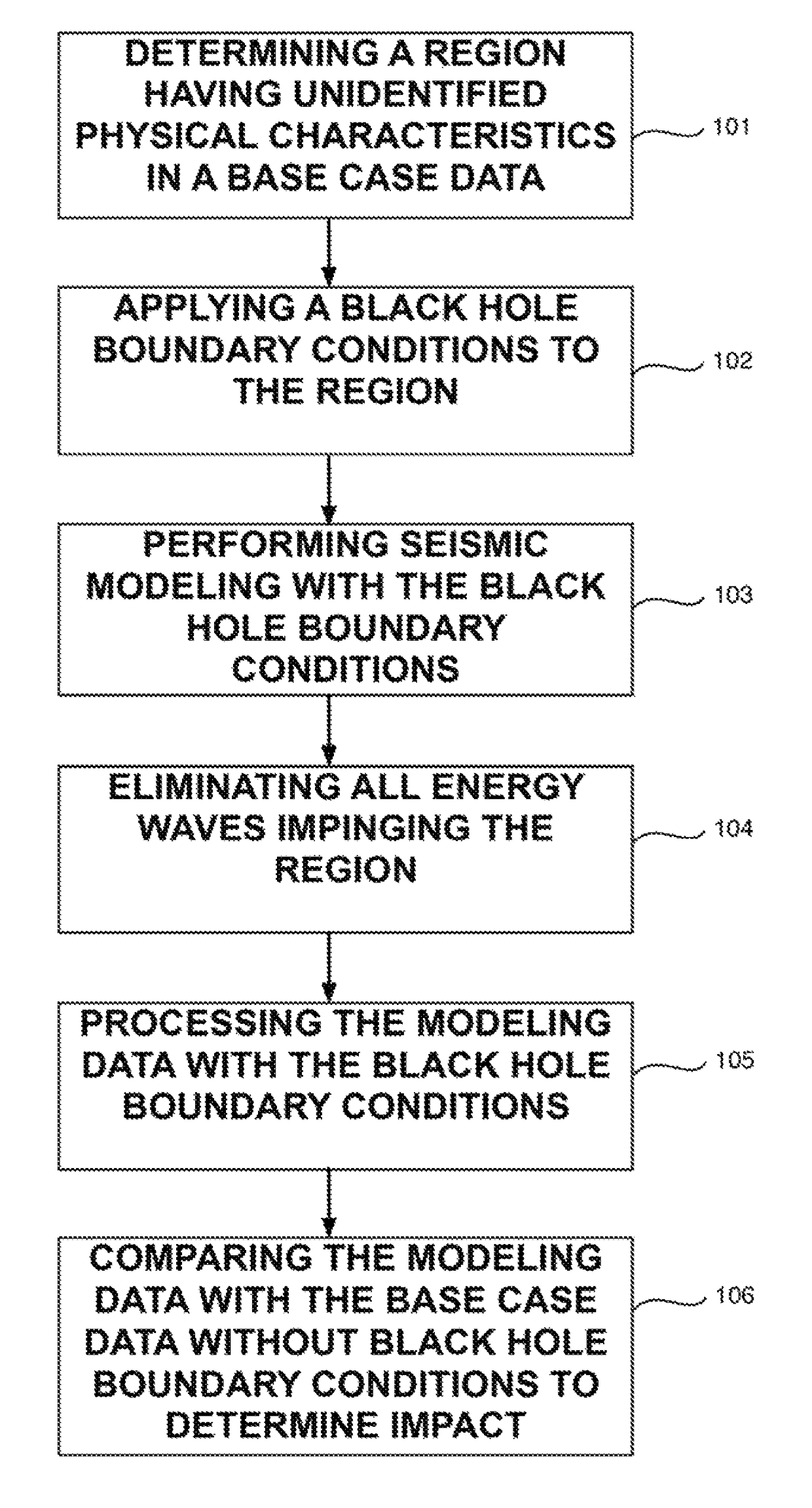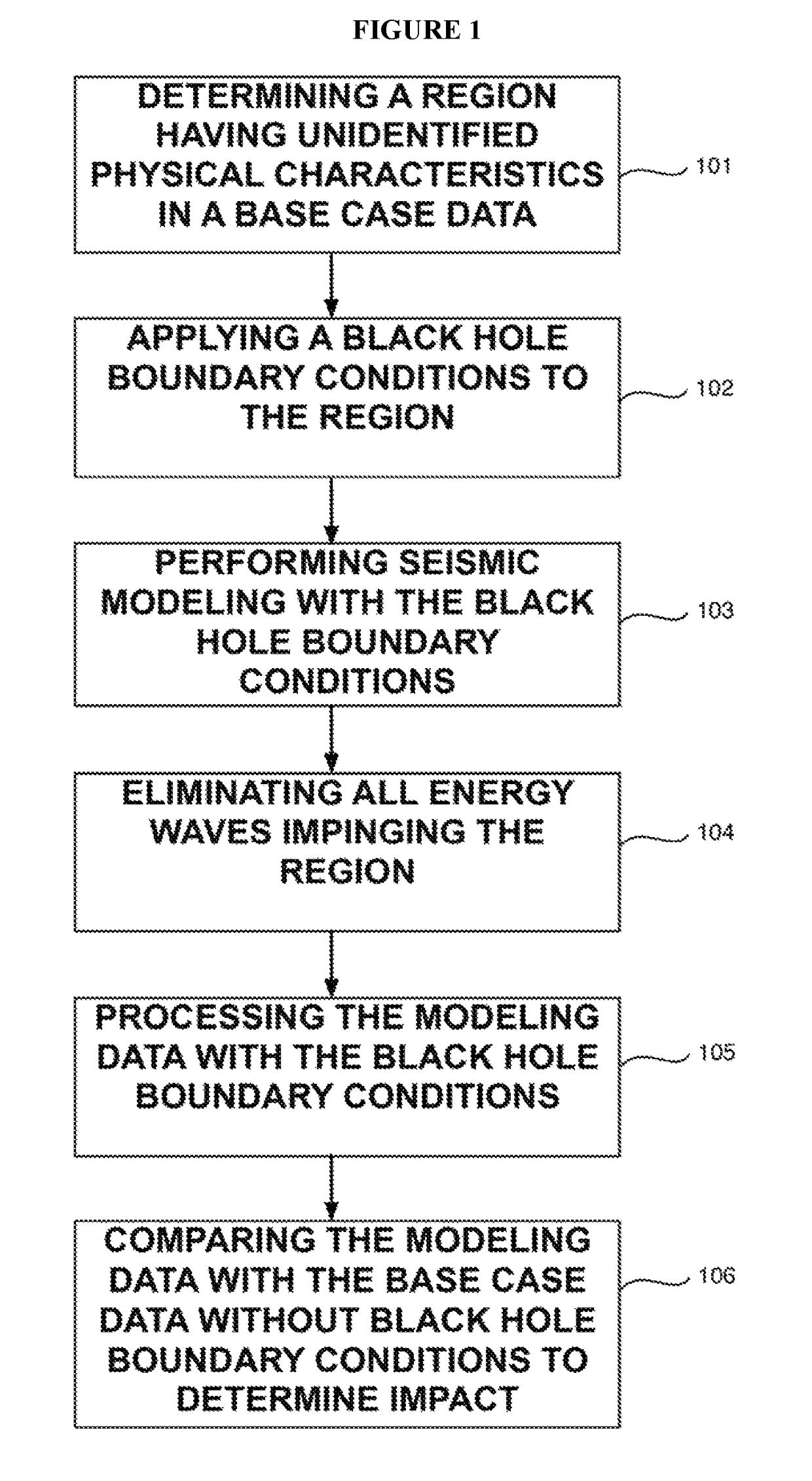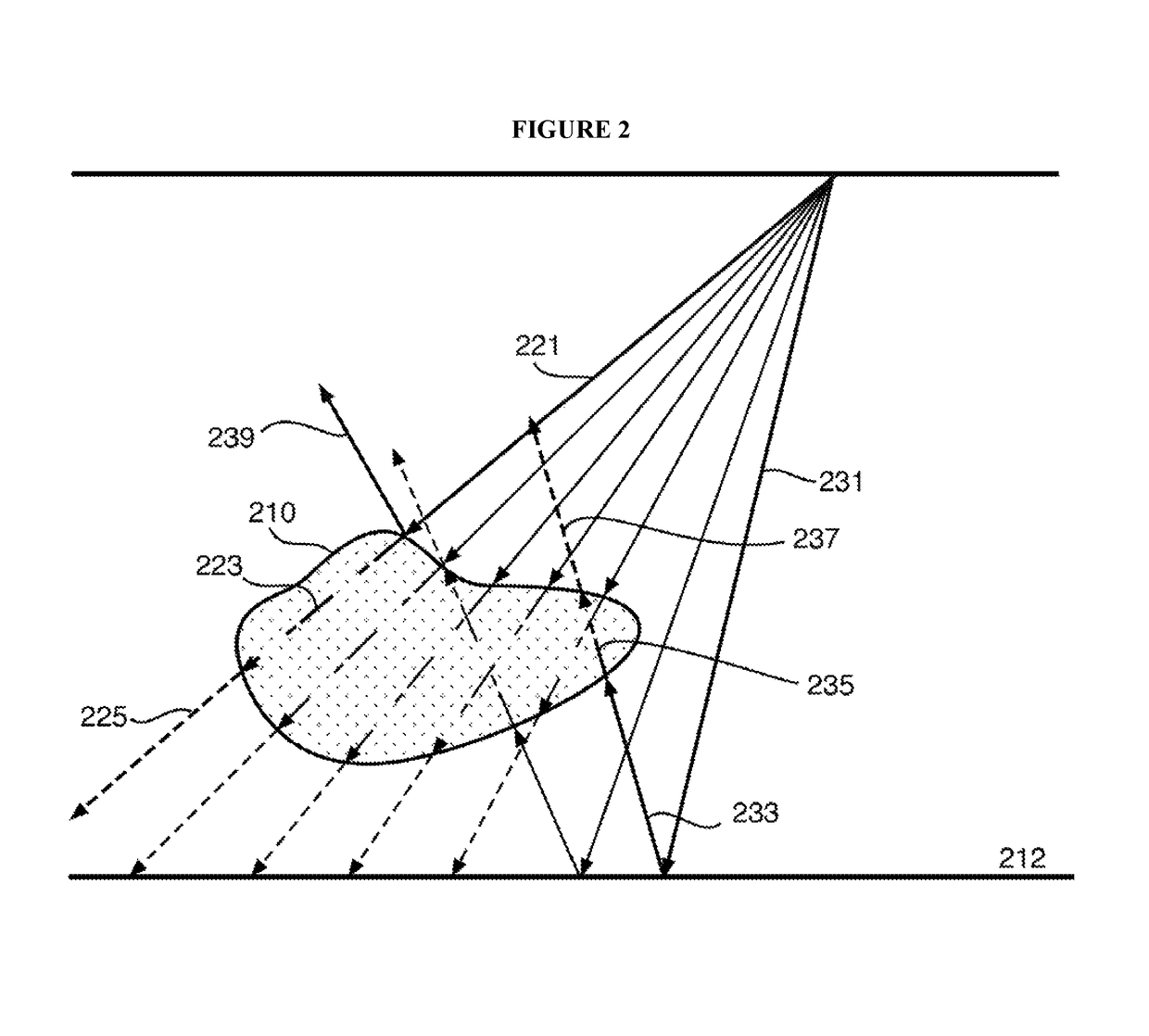Black hole boundary conditions
a boundary condition and black hole technology, applied in the field of modeling methods, can solve the problems of imperfect models and images, difficult to accurately represent the earth structure completely, and corrupt images, so as to prevent any distortion of the resulting image data
- Summary
- Abstract
- Description
- Claims
- Application Information
AI Technical Summary
Benefits of technology
Problems solved by technology
Method used
Image
Examples
Embodiment Construction
[0034]In the following description numerous details are set forth to provide an understanding of the present disclosure. However, it will be understood by those of ordinary skill in the art that the present disclosure may be practiced without these details and that numerous variations or modifications from the described embodiments may be possible.
[0035]In the present disclosure, the concept is to create a black hole boundary / space around a black hole region in the model where accurate profile or velocity field data is not available or the area is suspected as causing distortion and corruption of the rest of the image. As such in both the modeling and processing steps, no energy is allowed to pass through the boundary or black hole space, hence no reflected or refracted energy from this region will be allowed to distort the remainder of the image.
[0036]FIG. 1 is a flow chart describing the steps of the modeling method described herein. The method is based on existing seismic data of...
PUM
 Login to View More
Login to View More Abstract
Description
Claims
Application Information
 Login to View More
Login to View More - R&D
- Intellectual Property
- Life Sciences
- Materials
- Tech Scout
- Unparalleled Data Quality
- Higher Quality Content
- 60% Fewer Hallucinations
Browse by: Latest US Patents, China's latest patents, Technical Efficacy Thesaurus, Application Domain, Technology Topic, Popular Technical Reports.
© 2025 PatSnap. All rights reserved.Legal|Privacy policy|Modern Slavery Act Transparency Statement|Sitemap|About US| Contact US: help@patsnap.com



